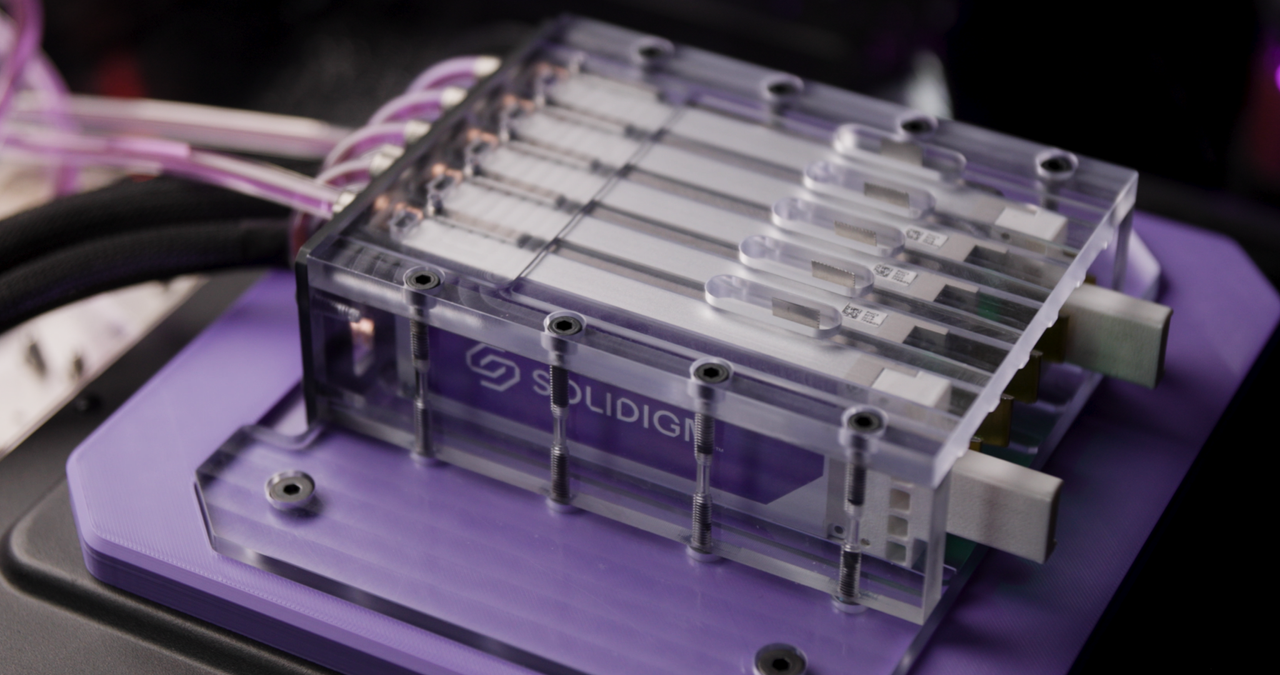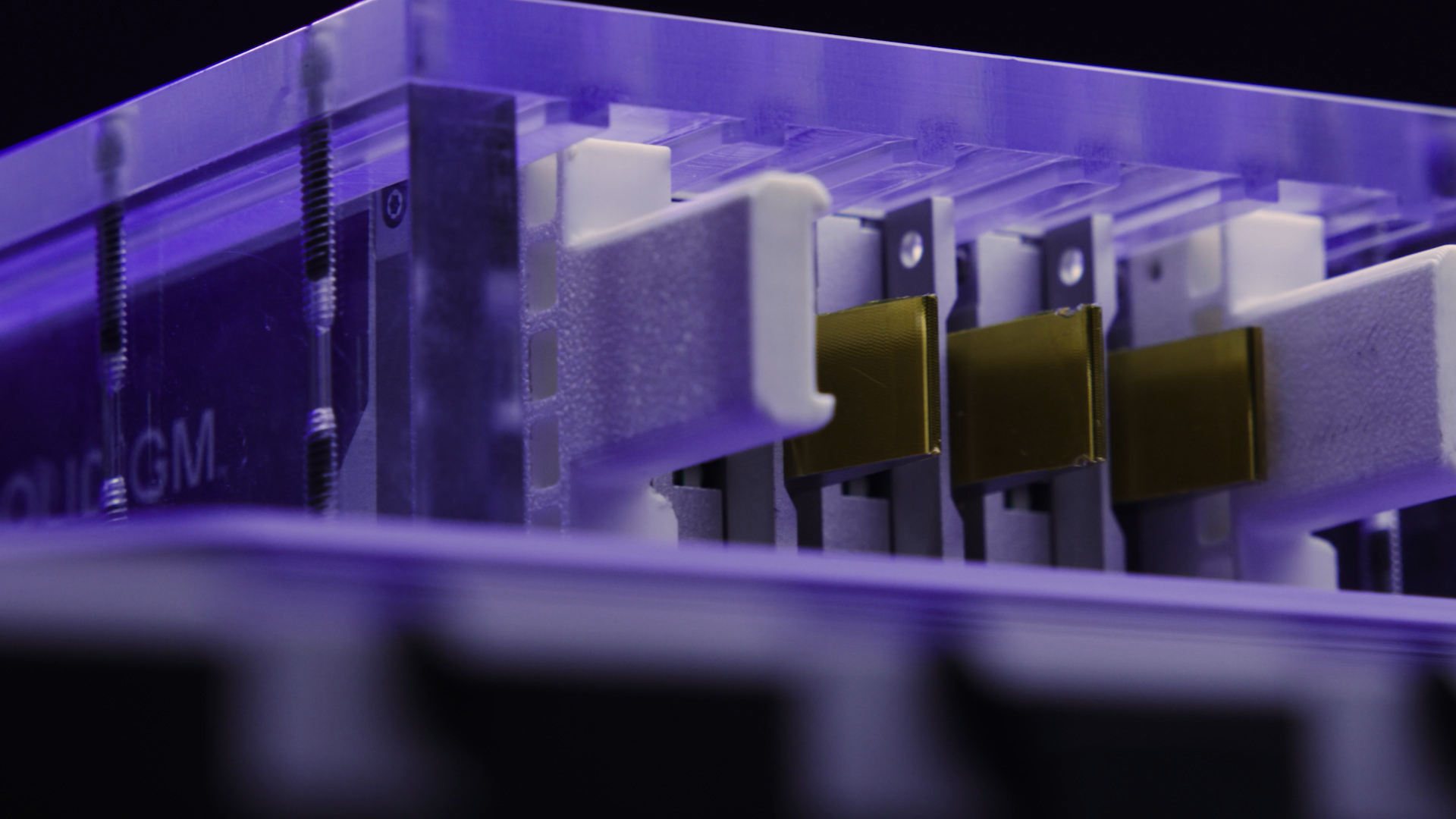
Solidigm has announced what it calls the industry's first liquid-cooled enterprise SSD, the D7-PS1010, in the blade-like E.1 form factor with a PCIe 5.0 interface. The SSD board is ensconced in a wraparound cold plate, with hose connectors at the ends, making for a hot-swappable design that directly cools the controller and NAND chips.
The company is pointing this SSD at AI servers with Direct-Attached Storage (DAS, as opposed to using a separate storage). To that effect, Solidigm talks up a partnership with Supermicro, which mentions the E.1S variant of these SSDs is a perfect fit for its Nvidia HGX B300-based servers. The hot-swap design in a compact form factor also helps with maintenance, as conventional liquid-cooled designs can be a bit fiddly whenever they need servicing.
The cooling apparatus of D7-PS1010 can cool both sides of the PCB at once and should make for much-improved thermal efficiency compared to traditional fan-based designs. Solidigm claims this design ought to let designers come up with server layouts that entirely eschew fans in their storage bays, potentially making the rack units smaller than ever.

The D7-PS1010 comes in two capacities: 3.84 TB for the 9.5 mm-thick version, and 7.68 TB for the 15 mm variant, with 176-layer TLC 3D NAND chips. Both of them use the E1.S form factor, though it's not hard to imagine that at some point, Solidigm will employ this technology in longer E1.L models. Solidigm says it's "working closely" with multiple ODM (Original Device Manufacturers) and OEMs to qualify both available versions for vendor lists.
The SSD's specs are within the expected range for an enterprise SSD and optimized for read-intensive workloads. The D7-PS1010 clocks in at 14,500 MB/s for sequential reads, and 8,400 MB/s for writes. Read IOPS are predictably impressive at 3,200,000 for random reads and a serviceable 315,000 for writes. As for endurance, Solidigm says the SSDs are good for 1 entire drive write per day (DWPD), or a total of 7 petabytes written. The MTBF is rated for 2.5 million hours, and the company offers a five-year warranty coverage.
Given the massive power requirements of an AI datacenter, anything that helps with thermal efficiency is most welcome. It's not hard to imagine future datacenters — perhaps the ones that OpenAI and Nvidia will build — using all-liquid cooling for their storage.
Follow Tom's Hardware on Google News to get our up-to-date news, analysis, and reviews in your feeds. Make sure to click the Follow button.







